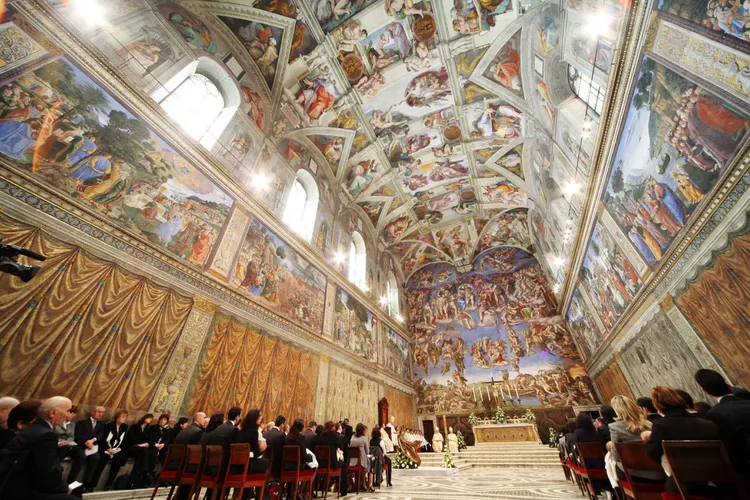1. Introduction
The Sistine Chapel is one of the main attractions to visit in Vatican City, showcasing breathtaking artwork that draws millions of visitors each year.
2. Visiting the Sistine Chapel
The Sistine Chapel serves as the concluding stop for those touring the Vatican Museums. Due to high visitor volume, it can be challenging to appreciate the artwork at close range. To enhance your experience and knowledge of the chapel’s history and its masterpieces, consider utilizing audio guides or guided tours. Additionally, to avoid the heavy crowds, a privileged entrance tour or a private after-hours tour can be beneficial.
It is essential to recognize that while the Sistine Chapel is part of the Vatican Museums, it remains an active site for significant church functions, notably the conclave for electing a new Pope.
3. Sistine Chapel History
Constructed between 1475 and 1481 under the direction of Pope Sixtus IV, the Sistine Chapel is aptly named from the Latin name Sixtus. The chapel boasts a grand measurement of 40.23 meters long by 13.40 meters wide (134 by 44 feet) and rises to about 20.7 meters (approximately 67.9 feet) in height. Its floor is adorned with polychrome marble, while the interior features an altar and a small choristers’ gallery, along with a marble screen separating clergy areas from the congregation. Eight windows embellish the upper part of the walls.
Michelangelo’s frescoes on the ceiling and altar are arguably the chapel’s most renowned paintings. Commissioned by Pope Julius II in 1508, these masterpieces came 25 years after the initial wall artworks by celebrated artists such as Sandro Botticelli, Ghirlandaio, Perugino, and Pinturrichio.
4. What to See in the Sistine Chapel
Sistine Chapel Ceiling: The ceiling features nine central panels illustrating The Creation of the World, The Expulsion of Adam and Eve, and The Story of Noah. Notable panels include The Creation of Adam, depicting God imparting life to Adam with a divine touch, and Fall from Grace and Expulsion from the Garden of Eden, portraying Adam and Eve’s shameful exit from Paradise. Grand images of prophets and sibyls adorn the sides and lunettes.
The Last Judgment Altar Fresco: Painted in 1535, this monumental fresco above the altar portrays intense scenes depicting the Last Judgment. The artwork illustrates hell as described by Dante in his Divine Comedy. Central to the painting is a vengeful Christ, surrounded by nude figures including saints and apostles. The fresco divides the blessed souls on the left from the damned on the right, featuring a striking image of Saint Bartholomew holding the skin from his own body, with Michelangelo’s face rendered upon it.
The North Wall of the Sistine Chapel: The wall adjacent to the altar presents scenes from Christ’s life, including:
- The Baptism of Jesus by Perugino
- The Temptation of Jesus by Botticelli
- The Calling of the First Disciples by Ghirlandaio
- The Sermon on the Mount by Rosselli
- The Handing of the Keys to Saint Peter by Perugino—an especially notable piece among the frescoes
- The Last Supper by Rosselli
The South Wall of the Sistine Chapel: This wall features scenes from Moses’s life, illustrated by various artists:
- Moses’ Journey Through Egypt by Perugino
- Scenes from the Life of Moses Before His Journey Through Egypt by Botticelli
- Crossing the Red Sea by Rosselli and d’Antonio
- The Ten Commandments by Rosselli
- The Punishment of Korah, Dathan, and Abiram by Botticelli
- Moses’ Final Acts and Death by Luca Signorelli
5. Sistine Chapel Tickets
Admission to the Sistine Chapel is included with a ticket to the Vatican Museums. Given the long ticket lines, purchasing Vatican Museum tickets online in advance can save considerable time.




